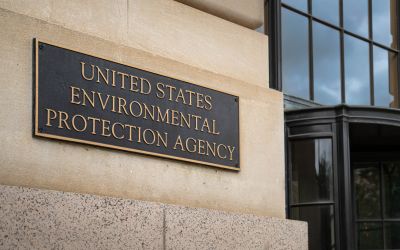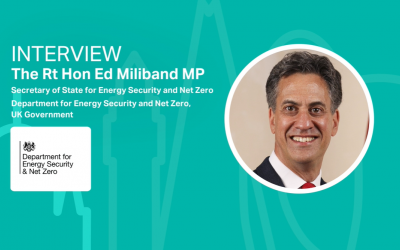Helena Wright on how sustainable finance can help prevent future pandemics
Ahead of the Sustainable Investment Forum Europe 2021, Helena Wright from the FAIRR Initiative talks to Climate Action about how sustainable finance can help prevent future pandemics.

Ahead of the Sustainable Investment Forum Europe 2021, Helena Wright from the FAIRR Initiative talks to Climate Action about how sustainable finance can help prevent future pandemics.
The FAIRR Initiative Policy Director Helena Wright provides a view on how sustainable finance can help to prevent future pandemics. FAIRR is an investor network with members with more than 30 trillion in collective assets that raises awareness of the ESG issues related to animal agriculture and leads collective engagement with major companies on these issues.
Do you think that the COVID-19 pandemic has directed more attention to the role of ESG and sustainable investing?
The spread of factory farms has brought with it an increased frequency of zoonotic disease outbreaks such as Swine Flu and SARS, so in that sense the COVID19 pandemic is the next one in a long line of such diseases. Three in four emerging infectious illnesses in humans are zoonotic diseases which are transmitted from animals to humans.
The COVID19 pandemic has redirected more attention to the need for a transition towards sustainable food systems to help prevent future pandemics. FAIRR research has shown that the majority of the world’s largest meat, fish and dairy producers are graded as ‘high risk’ against factors related to pandemic risk, such as worker safety, food safety, animal welfare and antibiotic stewardship. In fact, FAIRR’s Pandemic Ranking, notes that of the companies assessed, 73% were ‘high-risk’ across these factors.
As Governments are aiming to ‘build back better’ from the current crisis, including focusing on pandemic prevention under the G20, it will be interesting to see whether new policies are introduced to scale up the flows of sustainable finance and support efforts to tackle the drivers of pandemic risk.
How should governments respond to the health and climate crisis and what kind of policy action is needed to scale up flows of sustainable finance?
Increased efforts are already underway to respond to the climate crisis – for example at the UN COP26 Summit taking place this year - where Governments are expected to bring ambitious climate pledges to the table. However, it is notable that few of the Nationally Determined Commitments (NDCs) by countries last time included emission targets for agriculture.
Better disclosure in the agriculture sector would help investors make better decisions as they try to manage the risks of climate change – such as disclosure by companies on their emissions. It was found by FAIRR that 35% of the world’s leading protein producers reported an annual increase in emissions last year - and that 78% haven't declared or set meaningful GHG reduction targets. There is discussion about making such disclosure of climate related information under the Taskforce for Climate Related Disclosures (TCFD) mandatory - and this is an area that global investors are increasingly weighing in on as they try to manage the risks of climate change in their portfolios.
Moreover, when it comes to health, antimicrobial resistance is another topical issue in the policy space. Antimicrobial resistance (AMR) has been cited by the WHO as one of the biggest threats to human health, but alarmingly 70% of companies assessed by the Coller FAIRR Index rank as high-risk for antibiotic stewardship. What’s more, zero beef or dairy firms in the Index disclose information on their antibiotics usage. Given that in some countries, the total amount of antibiotics used in animals is 4 times larger than the amount used in humans, we need to see more robust antibiotic stewardship from companies in the meat value chain in order to avoid pandemics in future, as well as increased attention from policymakers on this long-term risk. The meetings of the G20 and G7 this year do provide opportunities for governments to tackle the issue.
In emerging economies how has COVID19 affected the prospects for achieving the UN SDGs?
The COVID19 pandemic risk has had far-reaching consequences for the global economy. These impacts have fallen particularly hard on the poorest communities. It is helpful that the international community is coming together to address these impacts.
However, as well as focusing on the short-term shock caused by COVID19 it will be important to continue to tackle the other long-term systemic risks facing the world such as the climate and biodiversity crises. Both climate change and environmental degradation also pose a major threat to the achievement of the UN Sustainable Development Goals. These risks will also destroy value and affect supply chains at the heart of our food systems. Just as an example, the world faces significant disruption to natural ecosystems due to currently identified tipping points in the climate system which pose a particular risk to agriculture and food systems.
As Europe remains a leader in sustainable and responsible investing, how can Europe build a resilient economy in the post-pandemic recovery?
At EU level, recent supportive policy developments include the EU Green Deal and the EU taxonomy on sustainable finance, which both help to position the region as a leader on sustainable finance. However, some inconsistencies do remain in terms of policymaking. One area in which there is room for improvement is in directing public finance to more sustainable agriculture. Interestingly, a group of FAIRR investor members recently supported a statement calling upon the European Commission to ensure its reforms of the Common Agricultural Policy (CAP) prioritise climate change and biodiversity protection.
It’s clear there is still more work to be done across Europe to mitigate the negative impacts of the current COVID-19 crisis and build resilience for future pandemics too. To prevent the spread of a future zoonotic diseases, key risks like working conditions and biosecurity standards will need to be addressed within animal agriculture. Factory farming is both vulnerable to zoonotic outbreaks and guilty of creating them – as evidenced by the mutated form of the COVID19 virus found in Denmark’s mink farms. European policymakers will have to look at the systemic risks in the economy and how to reduce risk to build a more sustainable and resilient economy.
Helena Wright will be speaking at the Sustainable Investment Forum Europe in April, bringing together asset owners and managers, ratings agencies, banks, UN and Government policymakers, investors, development banks, think tanks, and NGOs committed to driving forward the sustainable finance agenda. Register your place for free here.






